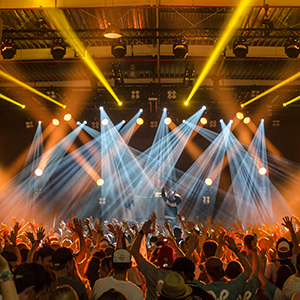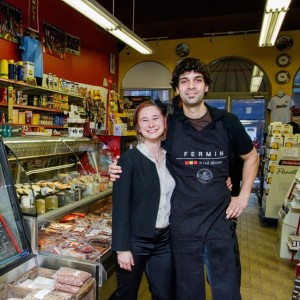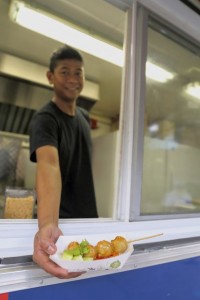
 Have you spent winter dreaming up a summer festival – but you’re not quite sure where to begin? We’ve got you covered. Festival event planning may not be the easiest item on your springtime to-do list, but with a few basics, you’ll be on the road to success in no time.
Have you spent winter dreaming up a summer festival – but you’re not quite sure where to begin? We’ve got you covered. Festival event planning may not be the easiest item on your springtime to-do list, but with a few basics, you’ll be on the road to success in no time.
1. Determine Your Festival’s Audience
When planning any event, start with the audience—who will be in the crowd? Consider their age range and other demographics. Creating an audience persona or having a general idea will help you decide how to market, where to host the event, and countless other details. For example, you wouldn’t want to have a family festival at a nightclub, but if you were having a three-day music festival, a nightclub may fit your needs. Keep your target audience in mind throughout the planning process.
2. Festival Budget Breakdown
Budgeting isn’t the fun, creative part of festival event planning, but it is imperative, especially for larger events. Decide how much you can spend on performers, vendors and venues before going into negotiations so you don’t sink into debt.
Consider how much you will want to charge for your festival and how much your attendees – going back to your target audience – would want to pay. You may want to consider early bird or group pricing to help encourage early purchases and help out attendees who cannot afford the general ticket price.
3. Location, Location, Location
Location is one of the most important aspects of festival planning. Will your festival take place in an urban warehouse or in a farm field under the stars? Be realistic. Look for a space that’s easy for the masses to find and get to. Check out the parking and/or public transportation situation. Consider the location of bathrooms, the festival entrance and exits.
4. Book Talent
In the initial stages of festival planning, whether it’s food, music, art, or all of the above, determine your goal and start reaching out to groups or individuals you’d like to feature. While you can keep some mystery about the main event, you will want to confirm it before too much time goes by, as most people will wait to hear what it is before buying in.
5. Festival Security
A frequently overlooked key to festivals is a dependable security team. Many companies exist exactly for this reason – to make your attendees feel safe and protected. Brief your security staff on how you want them to act in various scenarios and where you want them to be.
When interviewing a security team for your event, you’ll want to not only look for a team that can protect and enforce regulations, but also serve a certain amount of hospitality to your guests. You want your security staff to be approachable, not oppressive.
Other qualities you will want to look for in a festival security team:
- Medically Trained
- Familiar with your ticketing systems and best practices
- Prepared for large or small scale issues – from natural disasters to fence-jumpers
- Up to date on local and state laws
6. Food
If you are hosting a food and beverage festival – you likely already have the food all planned out. However, if you’re hosting an event that isn’t cuisine-centric, you’ll want to make sure that you have options in place for your all-day attendees. If you are serving food you will want to make sure you have the appropriate permits in place before your festival begins.
A booming trend across the country is food trucks – and festival event planners are taking advantage of their popularity. This food solution is also often more affordable for you and your attendees, and can provide a more eclectic food selection than a traditional catering service. As food trucks contain everything they need within the truck, you will likely only need to provide a place to park and trash services, which makes for an easy setup when dealing with remote or outdoor events.
7. Organizing Your Promotional Efforts
Promoting a festival is a long-haul marathon – from announcing on social media to creating a brand on Instagram and doing direct media outreach. Create a calendar, plan ahead and set deadlines for each promotional marker.
Sharing is caring. Comment below with your best festival and event planning tips. How did you do it?
Event Tips >



 Arts
Arts Comedy
Comedy Event Tips
Event Tips Film
Film Food & Drink
Food & Drink Good Causes
Good Causes Music
Music News
News Radio
Radio Roller Derby
Roller Derby